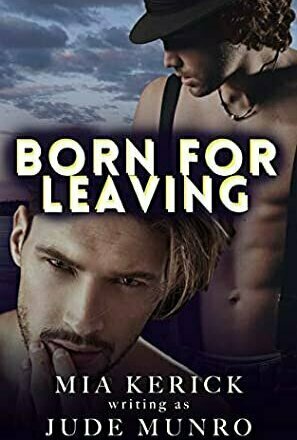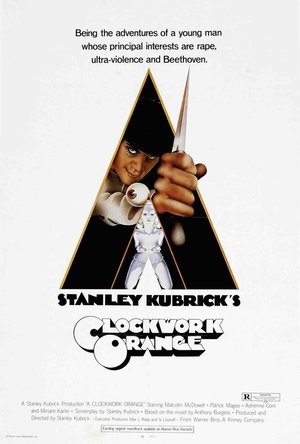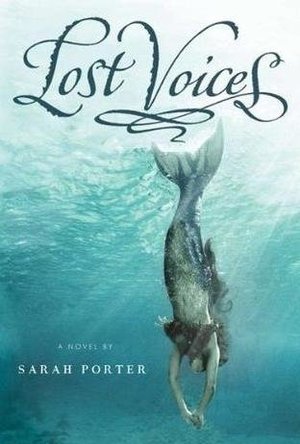
Ta-ra-ra-boom-de-ay: The Dodgy Business of Popular Music
Book
Simon Napier-Bell is a legend in the music business. Not only was he the manager of The Yardbirds, T...
Merissa (13600 KP) rated Born for Leaving (New England State of Mind #1) in Books
Aug 31, 2020
Oliver is the one with the house he is desperate to keep. So desperate, in fact, he keeps on working at a place where, although he gets on well enough with his co-workers, is dangerous for his physical, mental, and emotional well-being. His boss is his ex which is always fun but Oliver also has to deal with volatile drunkards too. Along comes Bodie. He is the one constantly on the move, sleeping on the ground next to his bike is not uncommon for him. Oliver and Bodie spark from the beginning but both of them have pasts that need to be worked past before they can move forward.
I thought this was exceedingly well-written, with characters I didn't like to start with who grew on me (Oliver's mum), those I disliked from the get-go (Jack), and those I loved (Bodie and Oliver). Now, let me just say this. Although I loved Oliver, he also really annoyed me. I just can't get my head around WHY he would stay in such a toxic workplace for so long, even if his dream job hadn't happened. Anyway, it all happened as was meant to be, so they say, so I guess I just have to deal!
This book does deal with hard subjects like attempted rape and child abuse. If these are triggers for you, be warned.
I found this book to be highly emotional and a brilliant read. I can't wait to see what comes next in the New England State of Mind series. Absolutely recommended by me.
* A copy of this book was provided to me with no requirements for a review. I voluntarily read this book, and the comments here are my honest opinion. *
Merissa
Archaeolibrarian - I Dig Good Books!

Winning Her (Perfect Stats #1)
Book
In the span of a year, Bane Carter acquired a new job, his brother’s four kids, a crappy nanny...
Contemporary Sports Romance
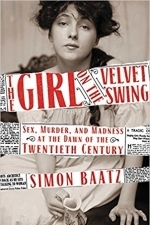
The Girl on the Velvet Swing: Sex, Murder, and Madness at the Dawn of the Twentieth Century
Book
From New York Times bestselling author Simon Baatz, the first comprehensive account of the murder...
crime non-fiction
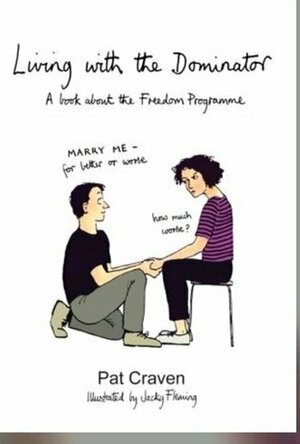
Living With The Dominator: A Book About The Freedom Programme
Book
"I am the author Pat Craven. When I was a Probation Officer I ran courses for male 'perpetrators’...
Domestic abuse Domestic violence Pat craven Living with the Dominator
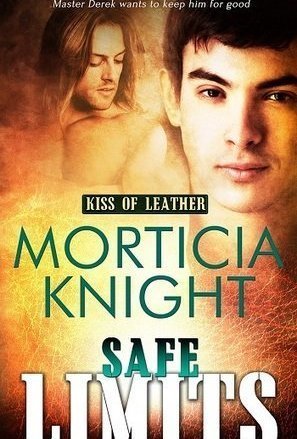
Safe Limits (Kiss of Leather #2)
Book
The men from Kiss of Leather gather together to rescue a terrified young sub. But it’s Master...
BDSM M_M Contemporary Romance
Chris Sawin (602 KP) rated A Clockwork Orange (1971) in Movies
Jun 15, 2019
Alex is promised that he'll be a free man within a fortnight. The treatment consists of a drug known as Serum 114 being injected into the patient before making them sit through short films such as a man being beaten to a pulp, a woman being the sexual victim of several men, and a Nazi concentration camp film set to the soundtrack of Beethoven's ninth symphony. Alex begins to feel sick during the films and the doctors insist that it's part of the cure. Alex's love for music and Beethoven in general become one of the adverse effects of the treatment as the ninth symphony has the same effect on Alex as the urge to beat or rape someone would. Alex soon comes to realize that you can never go home again and that being a free man isn't all it's cracked up to be, especially after a treatment such as this.
It took 37 years after its initial theatrical release and 24 years of being alive on this planet (the original viewing of this film was in 2008) to finally get around to seeing A Clockwork Orange. The film starts and it makes the viewer feel like they've missed something entirely that everyone else already knows about, but as the film unravels it snowballs into a unique vision of cinema. There are shades of Altered States in A Clockwork Orange, but A Clockwork Orange feels much more polarizing in its presentation in comparison. Stanley Kubrick tries to shine this spotlight of beauty onto the most heinous of actions as the film’s classical score becomes the soundtrack to ferocious and almost inhuman desires. This is Kubrick’s adaptation of the 1962 novel of the same name written by Anthony Burgess and it’s incredible how the film is able to remain captivating over a two hour period.
The film has a stunning restoration on the two-disc Blu-ray anniversary edition. Kubrick always had a brilliant eye when it came to perspective and camera placement; the majority of that could be contributed to Kubrick’s frequent collaborations with cinematographer John Alcott. The long hallway shots and close-ups on memorably haunting facial expressions are some of the most significant scenes in the film. A Clockwork Orange is loaded with vibrant colors that make every frame jump off the screen despite the film nearing half a century in age. This was the first film to take advantage of Dolby Digital surround sound, which contributes to the film sounding as good as it does.
Even with Stanley Kubrick as director, A Clockwork Orange wouldn’t be the same without Malcolm McDowell. McDowell fits the Alex DeLarge role as perfectly as Robert Downey Jr fits Tony Stark; these actors are these characters. The speeches McDowell gives in the film along with how traumatized he is after the treatment process are two of the biggest takeaways after viewing the film. This was one of McDowell’s first on-screen roles, which is surprising given how enthralling he is. You will never think of, “Singin’ in the Rain,” the same way again after viewing A Clockwork Orange.
A Clockwork Orange is a unique expedition into insanity no matter how you look at it. The dialogue is unusual and the characters are this fantastic blend of bizarre and diabolical, but the film is consistently engrossing and never seems to lag. Prior to 1986, the A Clockwork Orange novel was published in the US without its final chapter and that’s the version of the film Kubrick adapted. Anthony Burgess praised Kubrick’s version of the film despite this, which is more than what Stephen King did with Kubrick’s adaptation of The Shining. Every shot in A Clockwork Orange grabs your attention largely in part to how it’s presented or the colors that leap off the screen. The novel is written in a way that’s difficult to read and that often translates on-screen. Like most of Kubrick’s work, A Clockwork Orange is for a specific audience. It is perhaps what Malcolm McDowell is known best for and probably shouldn’t be recommended to just anyone since it would likely soar over a modern day moviegoer. This isn’t the type of film to have on in the background while you text or play games on your phone. Ultraviolence is something you have to embrace and give your undivided attention to.
This is viewed by some as one of the greatest sci-fi films ever by some, but it isn’t any less pretentious than the rest of Stanley Kubrick’s work. A Clockwork Orange is mesmerizing with a performance from Malcolm McDowell that leaves a long lasting impact, but its affinity to utilize difficult to decipher jargon, nonstop innuendo being slammed into your face, and overuse of animalistic violence shackles the film from being more appealing to a wider audience. From a personal standpoint, A Clockwork Orange is one of Kubrick's best but it's easy to understand why it wouldn't be for everyone.
Haley Mathiot (9 KP) rated Lost Voices (Lost Voices, #1) in Books
Apr 27, 2018
I liked the main character, Luce. She was smart and brave but a little sullen. And I couldn't figure out if I liked the queen of the mermaids. At first I hated her because I didn't trust her, and then at times I did like her, and she seemed bi-polar. Some of the other mermaid girls made me so mad I wanted to hit them. Especially the disloyal ones (There was a section where the girls started following someone else as their queen and she wasn't a good choice). Also on the loyalty aspect: I felt like out of all the girls (there had to be at least thirty by this section of the story) there had to be at least one besides Luce who was loyal to the other queen. It didn't make any sense. Those other mermaids frustrated me beyond all reason.
Back to the great side of the book, the writing was beautiful. It was enchanting and descriptive. There were parts that felt odd or out of place, and it would have been much better if it were from Luce's perspective (it was third person) but it was good and easy to read.
The book was addicting, and I couldn't stop thinking about it. The plot was interesting, the pacing was good, and there was tension all throughout the book. But the characters were frustrating. Maybe it was a good frustration, because I read it pretty quickly.
My only other complaint is the ending: It could have had a little more closure, or a little more promise. It was sort of like "oh, okay, so now it's over. now what? what happens next?" It reminded me a little of Cassandra Clare's endings (only it wasn't as horrible of a cliff-hanger).
Content/Recommendation: Some slightly emotionally disturbing references like rape, abuse, violence etc. but nothing explicit. No language. Ages 14+
graveyardgremlin (7194 KP) rated Three Complete Novels (Psycho, Psycho II, and Psycho House) in Books
Feb 15, 2019
How can I read and review the book Psycho without comparing it to its movie adaptation? Yeah, not possible. For starters, the biggest difference has to be Norman Bates' physical description, which is balding and dumpy in the book. A far cry from Anthony Perkins. For most of the book I admit to not being able to visualize Norman in a different light than Perkins, who I feel was genius casting. I mean, who in that day and age would ever see that next-door-boy-look as a threat? Other than that, I have to say that the movie is pretty darned true to the book; some minor things but nothing necessary was kept out. I enjoyed Bloch's writing, it's just smooth and easy to read, keeping to a nice clip. The next to last chapter has a bit of an infodump explaining Norman's behavior, but it's short and really didn't bother me. Probably one of the best handled infodumps I've come across. So, I'd definitely recommend reading the book if you enjoy the movie, it adds a little here and there to the film.
<i>4 stars</i>
<b>Psycho II</b>
How do I put this succinctly...? What a total piece of crap.
I thought it started out pretty well, for say about the first 25 or 30 pages, minus Norman's rape of a nun's corpse (which didn't seem in his character IMHO), but then it started going downhill and ended up in a deep, deep well. Bloch's characters and plot are cliche, boring, obnoxious, two-dimensional or a combination of all of the above. The denouement is ridiculous, although not totally unforseen, and it just seemed like Bloch wasn't even interested in writing a proper sequel with Norman Bates and was more interested in showing Hollywood as amoral and vapid. Whatever. I'm glad this is over. I have better things to do with my time, like clean the litter boxes.
<i>1.5 stars</i>
I will eventually get to <b>Psycho House</b> but I need a recovery period so this is going back to the library. I highly doubt that it'll be worse than P2.
